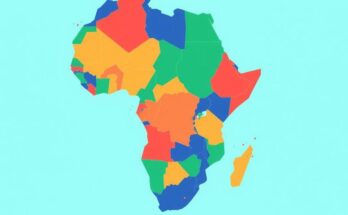Ecuador’s general election has concluded with 16 presidential candidates, highlighting the rivalry between incumbent Daniel Noboa and Luisa González. Noboa’s administration has focused on crime control amidst multiple crises. The election’s outcome may lead to a second round if no candidate meets the necessary vote percentages. Key issues for the new government include security, the economy, and education.
Polls have officially closed in Ecuador’s general election, where 16 candidates are competing for the presidency. Incumbent Daniel Noboa and his main opponent, Luisa González, are key figures in this electoral contest. According to Ecuador’s Constitution, a candidate must obtain more than 50% of the votes to secure an outright win in the first round, or at least 40% with a 10-point lead over the next candidate. Failure to meet these criteria will result in a second-round vote set for April 13.
The election outcome will determine whether Ecuador will maintain Noboa’s stringent approach to crime prevention or opt for González’s alternative vision. Noboa, having assumed office through a snap election in 2023 following Guillermo Lasso’s presidency, has faced significant challenges during his term, including frequent states of emergency and military involvement to combat gang activity. He has also initiated the construction of a new maximum-security prison after a notorious criminal escaped last year.
González, who secured second place in the 2023 election, aligns closely with former leftist President Rafael Correa, a pivotal figure in Ecuadorian politics. Her campaign, dubbed “Revive Ecuador,” promises a forceful response to the drug trade, paralleling Noboa’s strategies. The forthcoming government will confront critical issues such as security, economic stabilization, a nationwide energy crisis, and international relations when it takes office in May.
As analyst and Universidad San Francisco de Quito professor Santiago Basabe noted, “Security is the biggest problem the government has had, but in a country with huge social inequalities like Ecuador, I believe that among the priorities of the less advantaged sectors are, in addition to security, health and education.”
As this story is developing, further updates will be available regarding the election’s results and implications for Ecuador.
In conclusion, Ecuador’s general election presents a pivotal moment for the nation as it grapples with crime, governance, and social disparities. With significant figures such as Daniel Noboa and Luisa González contesting for leadership, the election results will shape the country’s approach to pressing challenges. The electoral process, especially the possibility of a second round, underlines the importance of voter engagement and the need for effective governance.
Original Source: edition.cnn.com




